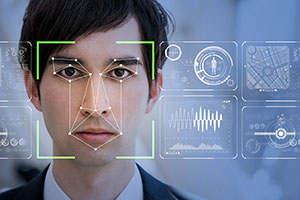
An ordinance banning the use of facial recognition technology in the City of Somerville was unanimously approved by the City Council.
By Jennifer Grimes
During the latest City Council meeting, an ordinance banning the use of facial recognition technology in Somerville was discussed, in consultation with the American Civil Liberties Union (ACLU), and advocated specifically by Ward 3 Councilor Ben Ewen-Campen.
The ordinance seeks to ban the technology “until our society can come up with transparent democratic regulations of how this technology is going to be used. This issue is one that has widespread support in our community,” according to Ewen-Campen. The Councilor had earlier created a petition to ban facial recognition technology in Somerville and collected 248 signatures, including 140 people from Somerville and more from outside of the community.
Research has shown that facial recognition software is consistently inaccurate, has a high false positive rate and a significant racial bias which is more likely to misidentify women of color than white men.
The ACLU performed a facial recognition test on the U.S. House of Representatives using an algorithm that has been adopted by Amazon and sold to law enforcement agencies. During this study, the members of the House were asked to provide headshots which were combined with mugshots of convicted felons, then the facial recognition software was used in order to match the correct photograph with the correct face. The facial recognition software misidentified 28 members of congress. The errors were particularly high when matching people of color.

Ward 3 Councilor Ben Ewen-Campen led the effort to pass the ordinance banning facial recognition technology.
Ewen-Campen invited Emiliano Falcon from the ACLU to provide more insight on the negative impacts of facial recognition. “Facial recognition is a technology that allows the government to identify, track, and catalog people based on the physical characteristics of their faces, this software works by creating a unique faceprint of individuals based on pre-identified photos or set of photos,” according to Falcon.
The faceprints are collected and included in a database which is used to search for matches and identify new and unknown faces captured by public video coverage. Some companies are also selling emotion detection surveillance systems, which supposedly identify whether a person is happy, sad, lying or angry based on their facial expression. “Generally speaking,” Falcon said, “We have three major concerns: unregulated use, intrinsic dangers, and civil rights and civil liberties.”
Face surveillance is currently unregulated in the United States but government agencies are still adopting this technology despite the absence of privacy regulations.
MIT researchers found that facial recognition software is more likely to misidentify darker skinned people than white men, which puts them at risk for racial discrimination. Additionally, the emotion-detection surveillance was found to label black males as angry even when they were taped or photographed while smiling, which also contributes to racial prejudice.
According to advocates of the ban, using this technology dismantles the first amendment, the right to speak freely, the ease of privacy in our own homes and the peace of mind that we are safe from misidentification or identity theft.
The vote to ban the use of facial recognition technology in the City of Somerville was unanimously approved by the Council.















Reader Comments